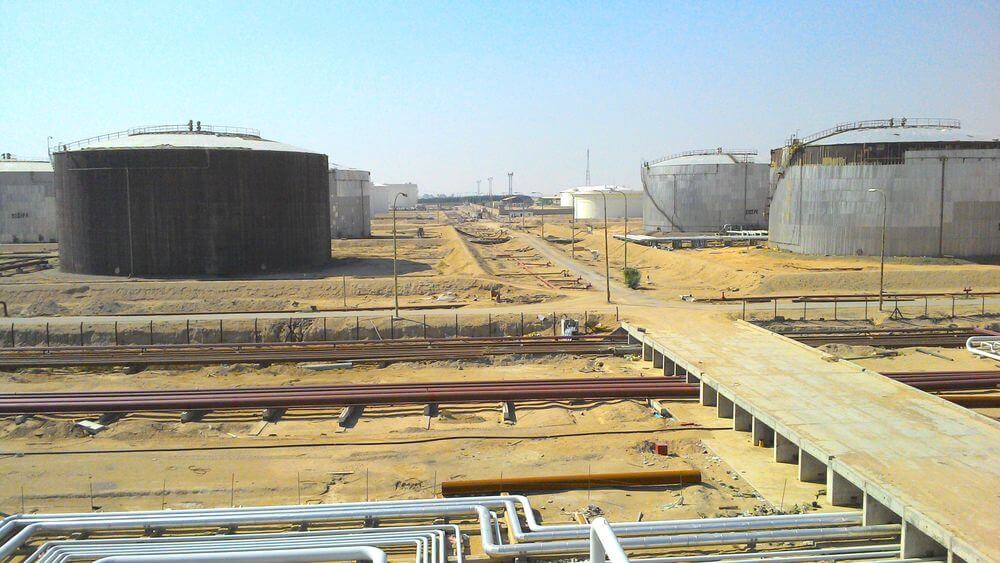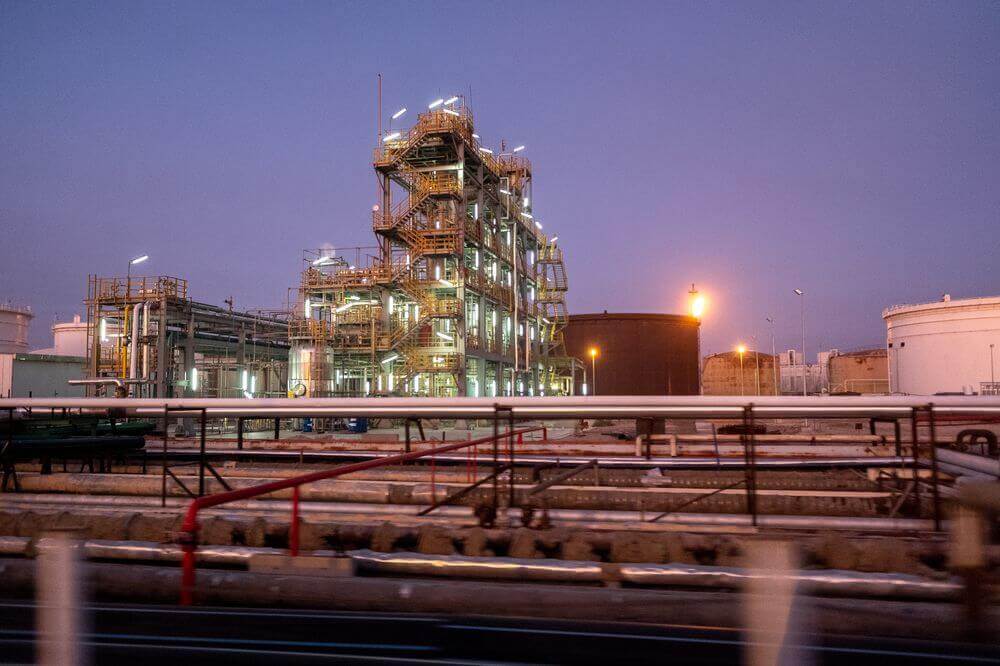The project consisted of the following units:
- Hydrotreating Complex,
- Reforming Unit,
- Cooling Water Unit,
- Flaire system.
The raw gasoline desulphurisation and reforming units were implemented under licence from the French company Axens.
The capacity of the semi-regenerative catalytic reforming unit is 417 thousand tonnes/year.
The catalytic reforming process is one of the most important systems in petroleum refineries. Catalytic reformers are operated under relatively high operating conditions. The temperature here must be between 470 and 500°C, the pressure between 30 and 35 bar and the hydrogen to hydrocarbon molar ratio around 5.9.
The reactors at the Basra refinery were equipped with a platinum-aluminium catalyst and the density of the feedstock reached values of 732,8 - 766,7 kg/m3. The results of investigating the effect of operating conditions such as temperature and feed pressure show that the quality of the gasoline produced can be influenced by adjusting the operating conditions of the system.
To improve the quality of gasoline at the Basra plant, the feedstock temperature was reduced to approximately 430°C and the operating pressure to 35.5 bar.

CAPACITIES OF OTHER UNITS
The diesel separation unit reaches 709 thousand tonnes/year and the hydrodesulphurisation unit 250 thousand tonnes/year. Water cooling system 2000 m3/h.
Despite the difficult situation at the site, the project started in June 2005. Subsequently, the initial and detailed design was approved and the equipment was dispatched to site. The last of the units (gasoline reforming) was commissioned in 2015. All units are now operating in normal mode and are achieving design parameters without any problems.
